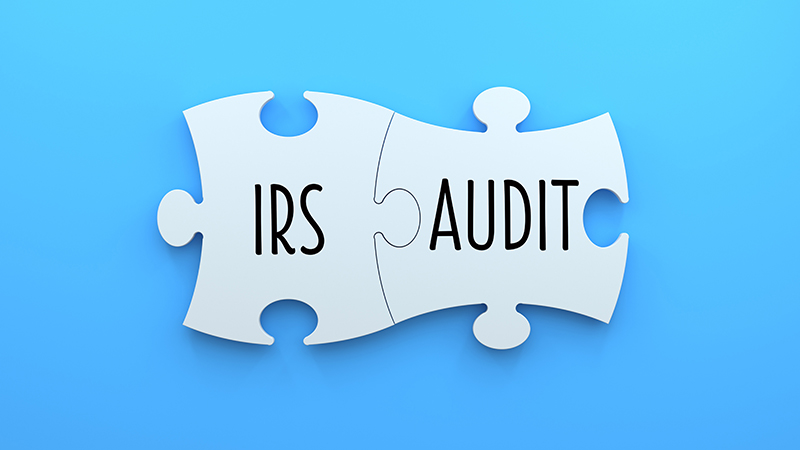What happens during an IRS Audit Reconsideration?
October 18, 2024 by Kate Ferreira
If you need tax relief, you are probably curious about what services you can use to help pay off tax debt. This blog will discuss one of the tax relief options available to taxpayers: an audit reconsideration.
What is an Audit Reconsideration?
If a taxpayer goes through the audit process but disagrees with the results, they can request an Audit Reconsideration. A taxpayer may also request an audit reconsideration if the IRS prepares a taxpayer’s income tax return on their behalf. This is known as a Substitute for Return and only happens if the taxpayer did not file a tax return for the year in question.
How do I know if I qualify for an Audit Reconsideration?
An Audit Reconsideration is available if a taxpayer has new information to submit to the IRS that was not available at the time the audit occurred. Please keep in mind that an audit reconsideration is generally done entirely at the discretion of the IRS, so it is not something that you have a right to. However, if you have new information that was not previously included in the audit and it would make a difference in the tax amount that you owe, it is always advisable to send in a request for audit reconsideration.
There are also several other situations where a taxpayer may request an audit reconsideration. If you did not receive the initial audit notice or decided to not appear for the audit (for example, maybe you were afraid of facing the IRS alone), an audit reconsideration may be an option for you.
An audit reconsideration may also be raised in a Collections Due Process Hearing; however, if you were given a prior opportunity to dispute the balance and did not take advantage of it, the IRS is under no obligation to accept the request.
Are there situations where I cannot request an Audit Reconsideration?
Just as there are situations where you may request an audit reconsideration, there are circumstances where you may not make the request. If you already paid the tax due in full, you would need to file a claim for refund by submitting an amended income tax return to the IRS. Furthermore, if you already took the case to U.S. Tax Court or another court and the court made the determination you owe the tax, you may not request an audit reconsideration for the same matter.
Who reviews my Audit Reconsideration at the IRS?
When you submit a request for audit reconsideration to the IRS, it will usually go back to the same IRS office where your original audit took place. Once received, the IRS will assign the reconsideration request to the same IRS examiner who handled the original case. If they are unavailable, it will be assigned to a different examiner.
What if I am currently in Collections?
If you are in Collections, it is advisable to call the IRS and request a hold on your account so any further collection actions may be paused while the audit reconsideration process is ongoing. The IRS will typically not stop collections on its own when you request an audit reconsideration, so it is important to be proactive and request the hold. If the IRS requests any documentation during the audit reconsideration process, make sure to respond timely – otherwise, the IRS may lift the hold and continue collection action. If you are currently on an installment agreement, the IRS may require you to continue making the monthly payments through the audit reconsideration period, so make sure to continue making installment agreement payments while going through the audit reconsideration process.
How long does it take for the IRS to respond to an audit reconsideration request?
Once you have submitted your request to the IRS, the turnaround time for them to respond is estimated to be around 30 days. However, if the IRS is facing a backlog, it is not uncommon for taxpayers to wait much longer. If you have questions about whether your audit reconsideration request was received, you can contact the IRS by phone to confirm. Continue to follow up with them every 30 days or so until you receive a response.
What if I don’t agree with the Audit Reconsideration outcome?
If you do not agree with the outcome of the Audit Reconsideration, there is generally a small timeframe in which you can appeal the decision by requesting an Appeals Conference. You also have the option of paying the tax due in full and filing a claim for refund by filing an amended return using IRS Form 1040X, Amended U.S. Individual Income Tax Return.
What if I don’t want to face the IRS alone?
It is always advisable to discuss your situation with a tax professional who is experienced in audit reconsiderations. They will be able to review the new documentation to be submitted and can advise on potential outcomes for your specific situation.
TaxAudit’s Tax Debt Relief team is one option available to you. Our team of experts has thousands of hours of experience with these exact types of issues and is standing by ready to help. You can start the process by scheduling a no-obligation consultation to learn where you stand and discuss your options. If you’re interested or would like more information, click here to get started.






